Born as Brothers. Raised as Rivals
One fateful night, we were celebrating someone’s birthday, when I discovered the original Final Fantasy for the first time. I was enraptured with it – the different classes, buying equipment, fight battles and exploring the world. I was so young at the time – I had no way of knowing how pivotal this moment would be in guiding my life and career decades later. I have always wanted to recreate that inspiration for others; with Erudia, I now have that chance.
Erudia: Battle of Birthrights has been in development for over three years. Variable Player Powers has always been my favorite board game mechanic, and preconstructed decks make it extremely accessible for new players. But preconstruction can risk harming the nuance of setting a strategy – are you creating one, or is it being given to you? I wanted to create a game where you got the best of both worlds – a starting direction for easy entry with a chance for customization to personalize your approach.Drawing heavily from its thematic roots of classic JRPGs like Final Fantasy and Ogre Battle, Erudia organizes its classes based on classical JRPG classes or jobs. Final Fantasy V and Tactics are particularly influential in providing the idea that you can enhance your primary job with secondary characteristics, but a Knight with White Magic is still a Knight.
Command and Conquer
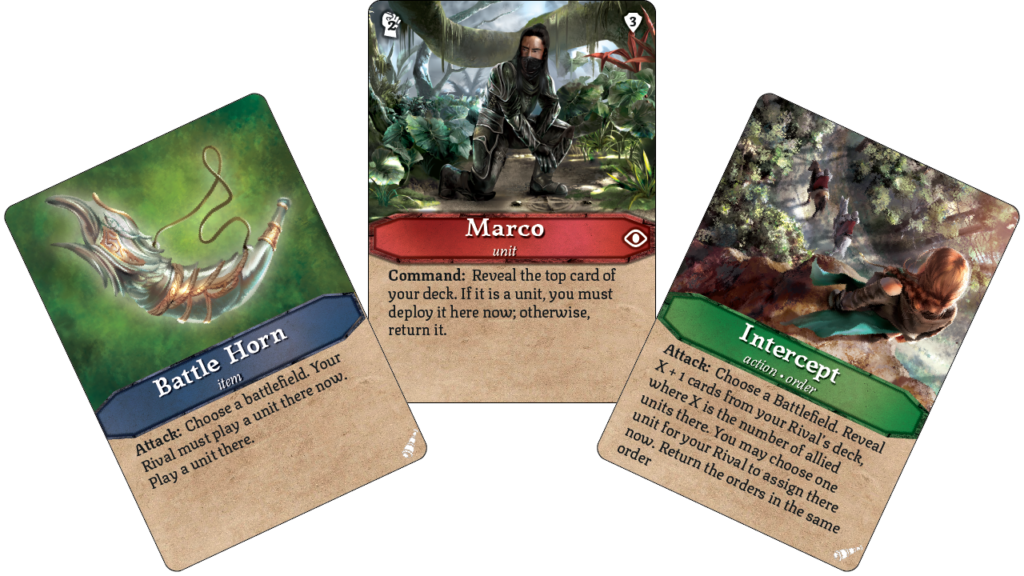
Each player forms a 50 card deck consisting of a 30 card primary class, one 15 card secondary class and 5 neutral cards. The core gameplay consists of an Action Point Allowance system where players can take three tactics per turn, which may include playing cards or other offensive or defensive maneuvers. Because of this system, players always have something meaningful to do on their turn and rarely pass in their quest to conquer battlefields for victory points.
With multiple card types and multiple abilities, players must use everything in their army available to conquer battlefields and outscore their Rival. Abilities take many forms, including but not limited to Attacks that provide a one-time instant benefit, repeatable Commands that create strategic engines or limited use Unleash abilities that build over time.
There are multiple ways to capture a battlefield, allowing players to approach the game from multiple strategic vantage points. Surprise your Rival by eliminating a set number of their units on the wrong location. Watch as a battlefield begins to collapse on itself and become easier to capture as more time passes. Prove your might through unit quantity rather than quality. With several different terrains and rules for customizing the Battlefield deck, these locations provide just as much replayability opportunity as the classes themselves.
Prepare for Battle
In Erudia, players are competing for control of battlefields which are arranged in a 2×2 grid. A battlefield is captured when players collectively meet the designated power threshold, supplied by their units and other cards; alternatively, a battlefield is captured when its terrain specific objective is met. However, capture is never a guarantee, as players may have the opportunities to Ambush and swing the final battle in their favor.
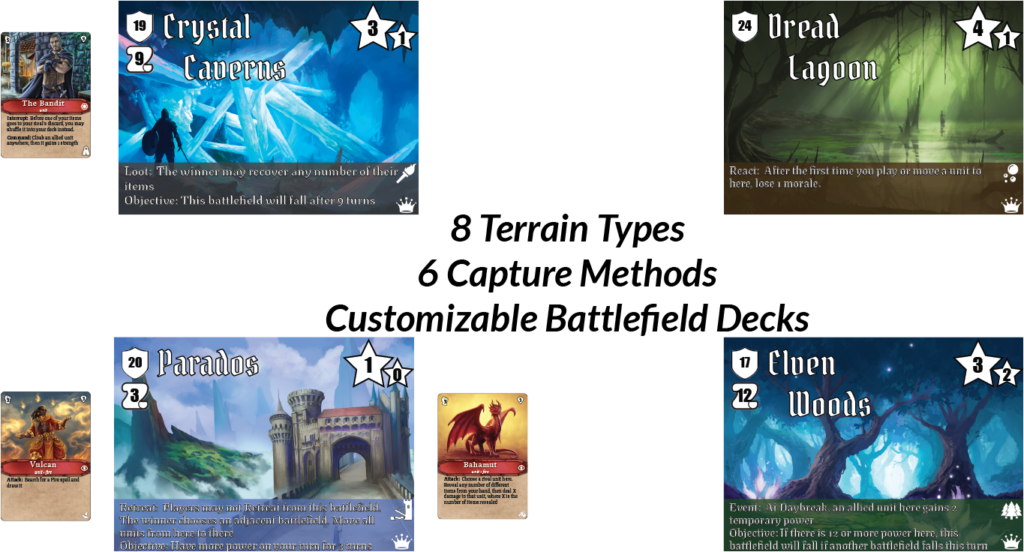
During their turn, players use their tactics to manipulate battlefields to their advantage, using every resource available to strengthen their presence and reinforce their positions. The available tactics grant basic abilities to each player regardless of deck composition, allowing players a diverse playstyle even within a set deck. You can use your turn to damage units to remove them from the board; you can shield your units to make them harder to remove, as their presence is needed in order to score victory points. You can use their limited Morale resources to draw cards or improve your positioning for a future turn.
Diverse Gameplay and Configuration
Each primary class also has a secondary form, while there are secondary-only boosters that offer additional permutations of classes. Erudia contains 8 primary classes and 4 additional boosters, for a total of 88 unique permutations out of the box, which expansions will only increase. Playing a Knight Thief deck is not the same as playing the Thief Knight deck, offering double the replayability.
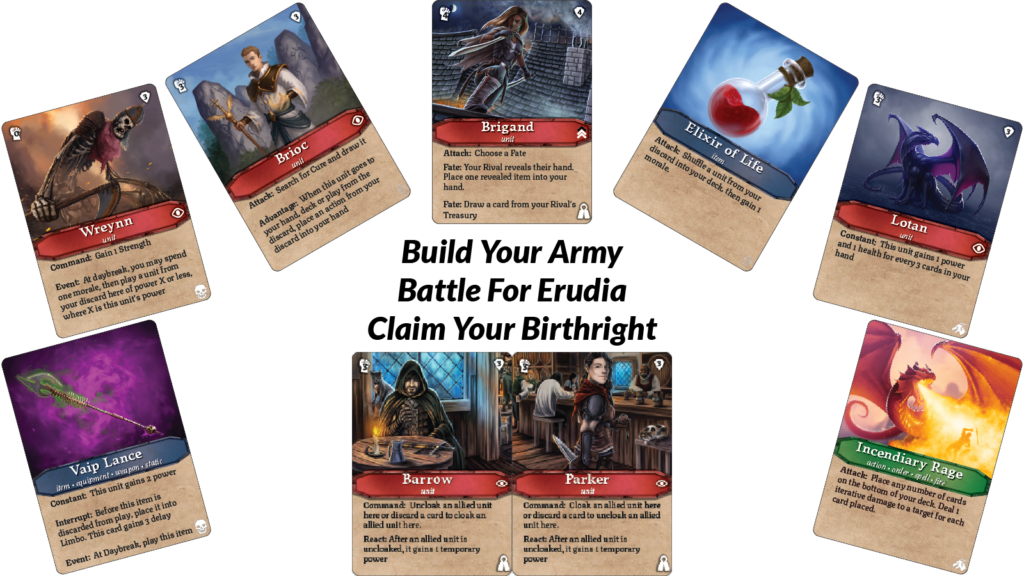
Additionally, customizable cards available to all players allow players to experience the same deck in new ways, personalizing their strategy and providing uncertainty for your opponent, since these cards are chosen in secret at startup.
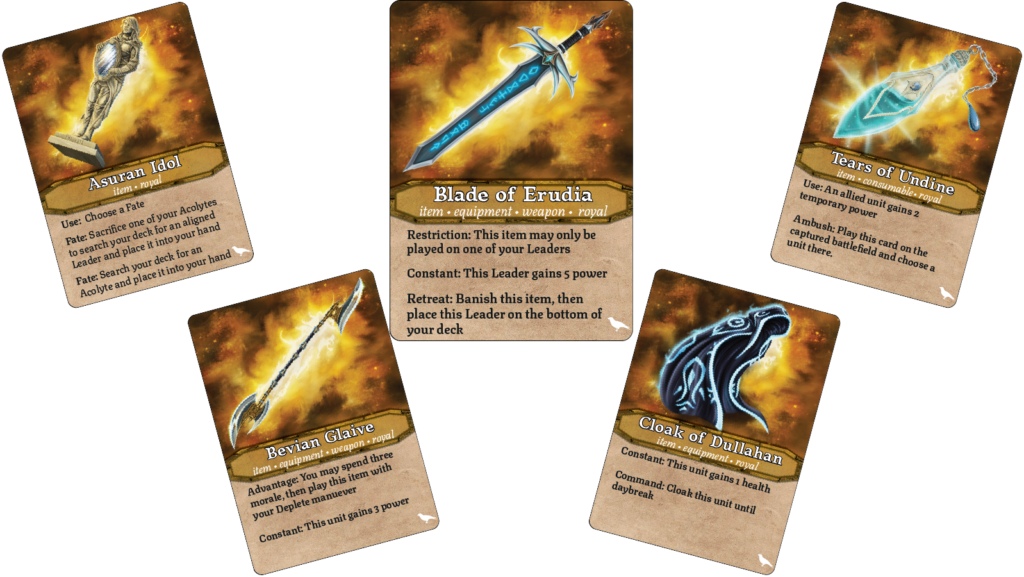
Players also choose their starting strategy by drafting an Acolyte from each of their classes. Acolytes are highly ranked units who have unique abilities and only appear once. Each class offers five Acolytes from which you can choose your starting units, but expansions will allow further customization where you can choose your five Acolytes from within a set of more than five candidates.
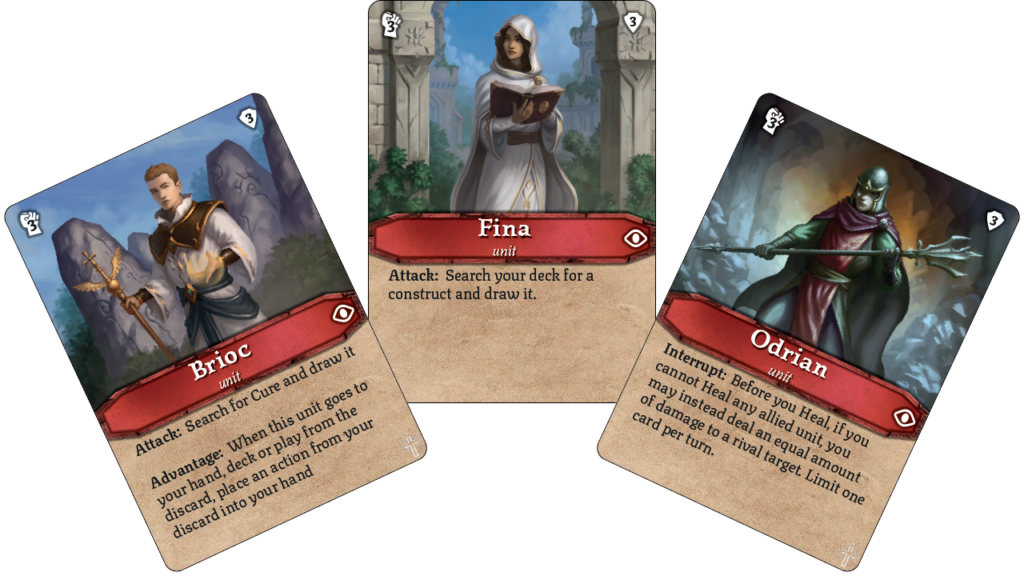
Futureproof Design
I have played many card games where the game evolves over time and bloats its rules or loses its identity. Rules begin to change or conflicts occur, where the player base is not fully aware of the current set. To combat this, great length has been taken to create high fidelity designs for 50 different classes. While these future classes have not been tested, knowing the direction of the game allows you to write consistent rules and ensure that past cards can interact with what is to come.
Expandable card games often suffer from a Power Creep phenomenon where old cards are deprecated or weakened by the arrival of new ones. While it is likely impossible to eliminate this completely, this approach also helps to combat Power Creep by making sure that cards are considered against the total state of the game
Community Engagement
Jim Price is known within the Smash Up community for starting Crank It Up Podcast, a podcast focused on strategy videos and analytical content for the board game Smash Up. Jim has created over 300 videos as a fan and is the creator of March Smashness, where players all over the world filled out NCAA-style brackets in a massive tournament featuring all the content in the game system. Brigand Games will be using the Crank It Up platform to build community for Erudia and engage with players, which will be important because …
Community Contribution
Have you ever wanted to have your ideas in a board game? This is your chance. Our community is filled with amazing talent. I’m a big comics fan, and it always struck me how the fans of a comic book property often had more interesting theories than the actual creators, because passion breeds innovation. We want that passion in our game.
Erudia has several opportunities for the community of players to submit their ideas into the game and receive attribution for their work. This is our game we build together. While it will take time for players to be able to contribute at the level of the developers, we have already reaped the benefits of community design with our Fairy class, a joint design effort between myself and three of our team members. Together, we created something greater than my original vision, and it is truly ours. Each expansion will contain a new customizable item where players can submit their ideas. Each expansion will also contain a booster that is designed by members of the playing community.
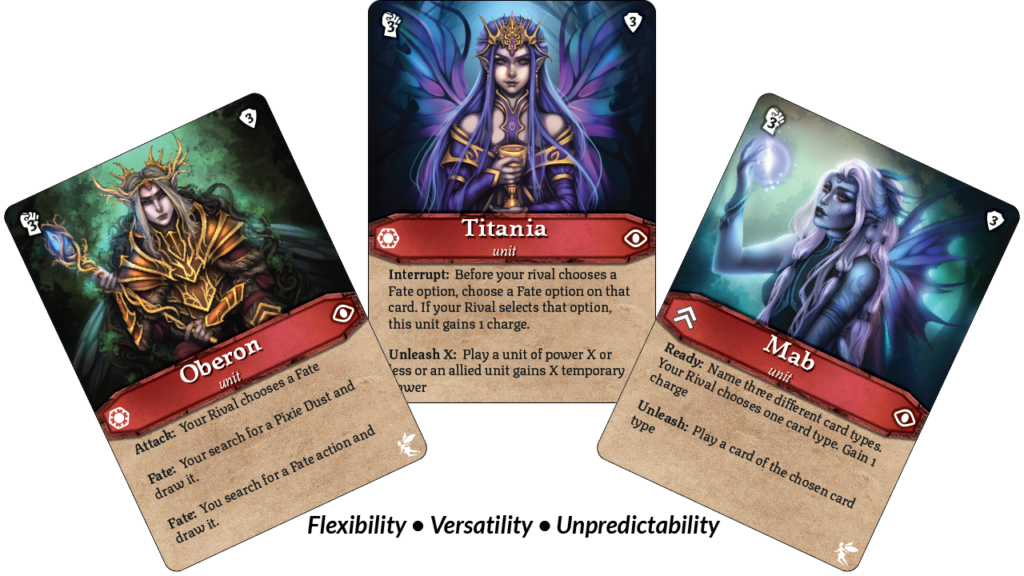
There are already plans for a community-driven expansion, where I take a backseat and allow the community to have greater input into the primary class design, but we have to get through several expansions to get there. However, I strongly believe the steps we have already taken and the steps we will be taking show Brigand Games commitment to making this part of our identity as one of our core values.
Inspiring the Next Generation of Gamers
Every playtester, artist, friend and family member has heard the exact same mission statement – Erudia seeks to be a truly inspiration game system for the next generation of gamers. We have extensive experience promoting community within the industry and believe that it is crucial. With no shortage of games to play, what makes a game special is the players behind it, and that is what community is all about – the players. Brigand Games pledges to form a world-class community to back our games, whether it is answering questions, sharing stories or including your ideas in the game. Together, this becomes our game, and we truly believe that we can reach new gamers as a result and continue to promote this wonderful hobby of ours.
0 Comments